Formal courses and departmental seminars include: biostatistics, microbiology and immunology, oral pathology, orthodontics, growth and development, speech development, physical diagnosis, pediatrics, oral pathology, genetics, orthodontics, child psychology, ethics and dentistry, research planning and design, literature review, pediatric dental text review, clinical case seminar, comprehensive treatment planning, comprehensive behavior guidance to include sedation, oral clinical exam preparation, prevention and disease control, practice management, organized dentistry, community dental health and other special topics.
Rotations include: Cleft palate/craniofacial anomalies, pediatric medicine, emergency on-call, anesthesiology, oral surgery and interdisciplinary pediatrics (child psychiatry and other developmental disciplines through the Munroe-Meyer Institute), operating room services.
During the first year, 65 percent of total resident time is spent in clinical activity. During the second year, 75 percent of total resident time is spent in clinical activity. The majority of clinical training is conducted at the Pediatric Dental Clinic located at Children's Nebraska in Omaha. Residents gain extensive experience working in collaboration with other pediatric medicine specialties.
| Program Year 1 | Program Year 2 | ||
| Anesthesia | 4 week rotation | ||
| Biostatistics | Fall weekly | ||
| Craniofacial | Ongoing | Craniofacial Clinic | Ongoing |
| H&P | Fall weekly | ||
| Interdisciplinary | 1 week rotation | ||
| Oral Pathology | Fall (even years) | Oral Pathology | Fall (even years) |
| Osteogenesis Imperfecta | Ongoing | Osteogenesis Imperfecta | Ongoing |
| Oral Surgery | 1 week rotation | ||
| Ortho | Ongoing | Ortho | Ongoing |
| Pediatric Medicine | 2 week rotation | ||
| Teaching | Spring semester | Teaching | Fall and spring semester |
| Faculty Lectures | 3 weekly | Faculty Lectures | 3 weekly |
| Additional/Guest Lectures | As determined by program director | Additional/Guest Lectures | As determined by program director |
Children's Nebraska, Omaha |
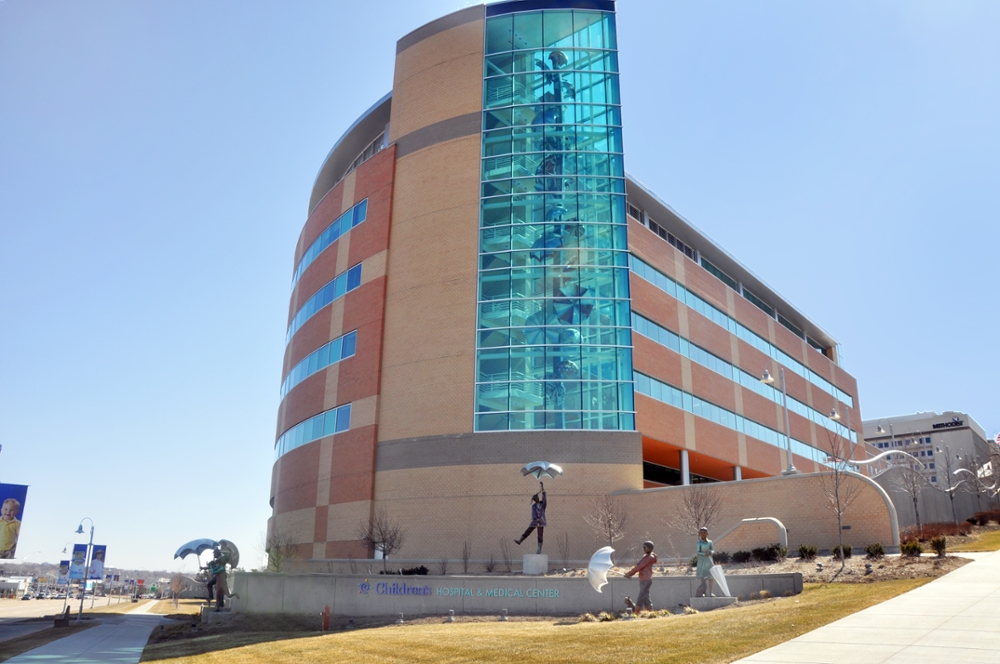 |
| The program’s main location and primary site for inpatient pediatric training, including clinic, ED, OR and interprofessional experiences. Children’s is the only full-service, pediatric healthcare center in Nebraska, providing expertise in more than 50 pediatric specialty services to children across a five-state region and beyond. The patient population is socially and economically diverse. |
Children’s Outpatient Surgery Center at West Village Pointe |
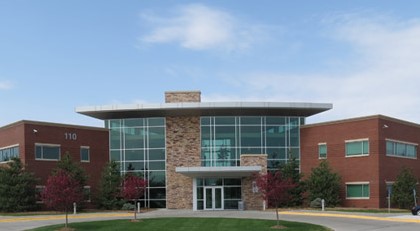 |
| Residents receive extensive OR experience in this 10,000 square-foot facility that has 3 state-of-the-art operating rooms and 18 pre-operative and post-operative rooms. |
UNMC Munroe-Meyer Institute Caring for Champions Dental Clinic, Omaha |
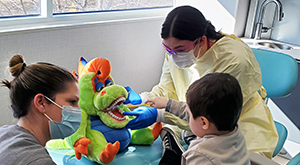 |
| In 2021, the College collaborated with the UNMC Munroe-Meyer Institute to open the Caring for Champions Dental Clinic, inspired by Special Olympics athletes. Residents provide comprehensive oral health services for individuals with intellectual and development disabilities. |
UNMC College of Dentistry, Lincoln |
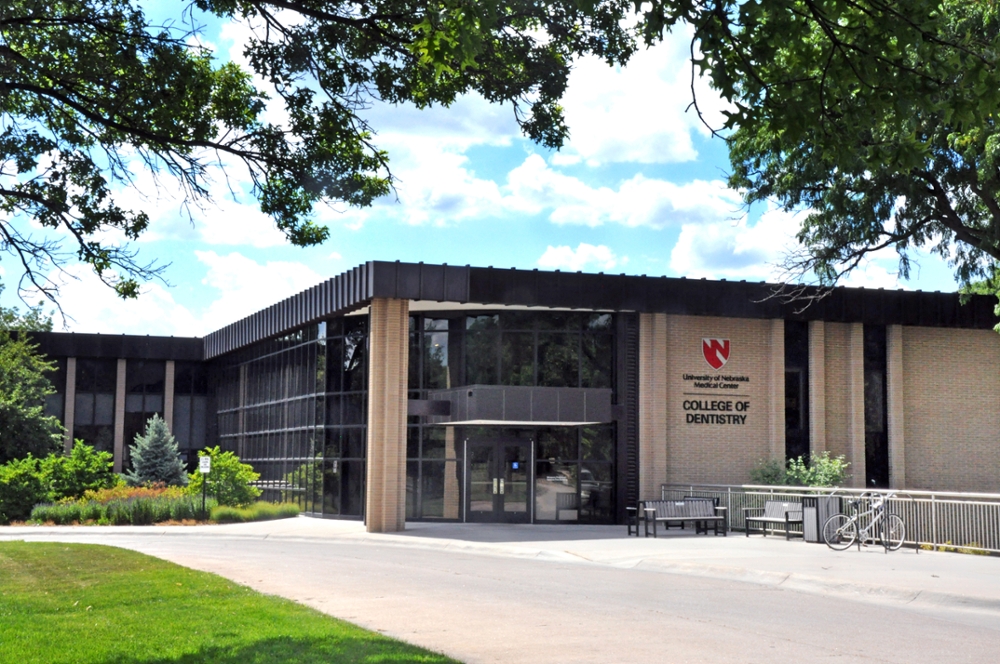 |
| Located on the University of Nebraska-Lincoln East Campus, the College of Dentistry Pediatric Dental Clinic has nine operatories. Residents provide patient care and clinical instruction and oversight for third- and fourth-year dental students. They also rotate to the College’s Orthodontics Clinic. |
UNMC/Nebraska Medicine Rotations, Omaha |
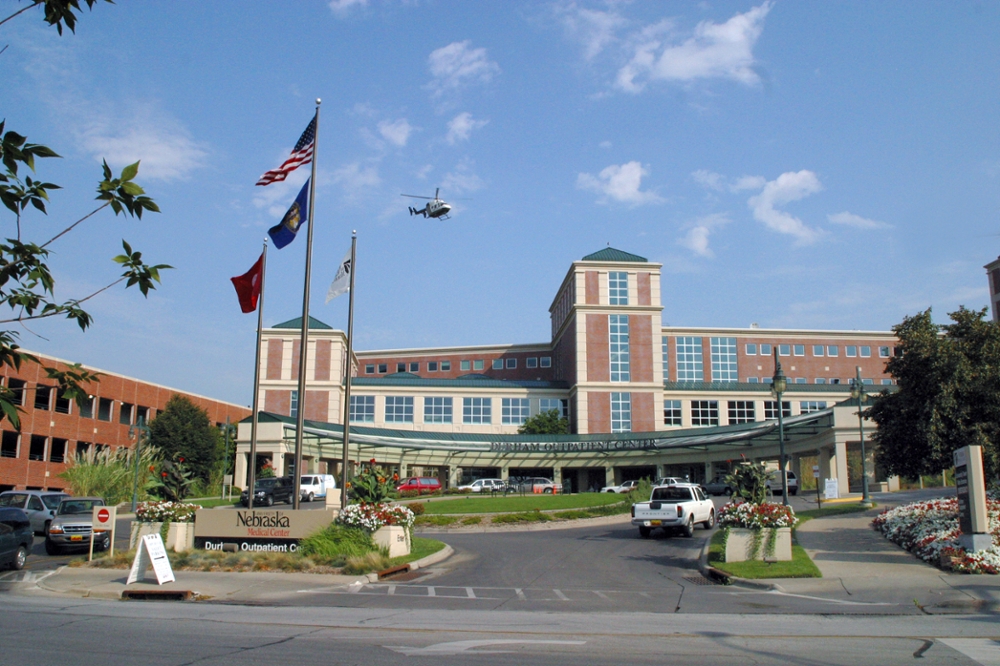 |
| On the UNMC-Omaha campus, residents complete the following rotations: Anesthesia, Pediatric Medicine, Interdisciplinary and Oral Surgery. They have hands-on learning opportunities alongside UNMC and Nebraska Medicine’s extraordinary providers. |
Boystown National Research Hospital, Omaha |
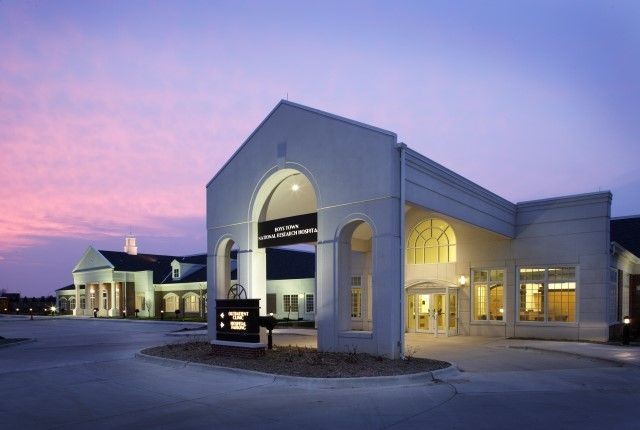 |
| At the Boystown National Research Hospital Craniofacial Clinic, residents help provide life-changing care for infants and children with oral-facial clefts and other diseases, disorders or injuries affecting the face, jaw, skull and ears. |
Community Outreach, Across Nebraska |
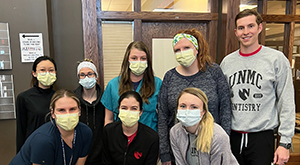 |
| Residents treat the underserved at Federally Qualified Community Health Centers, including the Charles Drew Health Center in Omaha, and participate in UNMC and College of Dentistry outreach programs, including Children’s Dental Days where free care is provided to underserved children. |
| Level | Annual | Monthly |
| H1 | $38,542.90 | $3,211.90 |
| H2 | $38,542.90 | $3,211.90 |
Graduate Medical Education (GME) funding allocations by UNMC must be established before resident stipends for the year can be established. Residents will be assigned a 1.0 FTE status which makes them eligible for a flexible benefit package which includes choices among health, life and disability insurance. Future income is contingent upon continued availability of federal funds and, therefore, is subject to change at any time.
Tuition and Fees
Tuition and fees are $7,780 each year.
Student Loans and Loan Deferment
Currently, residents are considered postgraduate students of the College of Dentistry for financial aid purposes. Postgraduate students may get financial aid information from the UNMC Financial Aid Office and student loan payments for postgraduate students can be deferred.
Vacation/Sick Leave
Postgraduate students shall have fifteen (15) scheduled working days of paid leave per year. Leave includes ten (10) for vacation and five (5) for professional development. Leave in excess of fifteen (15) days per year (which will be granted for special circumstances only) must be taken as Leave Without Pay from the college or as Family Leave. Leave requests must be submitted as per the policies of the program and the college.
Private Practice
Residents are allowed to engage in the private practice of dentistry during their program. Please contact the program director for details.
State of Nebraska Residency
As employees of the University of Nebraska Medical Center, postgraduate students are considered residents of the State of Nebraska.
Postgraduate students are required to have a Nebraska Dental License (temporary or regular) by the time they are to begin the postgraduate program. Those who accept GME funding are expected to have a Nebraska Dental License (temporary or regular) and federal and state DEA licenses before July 1 of the year of the commencement of their program so they can participate in the After Hours Emergency Care Program.
It is possible for a student who has graduated from an ADA-accredited American or Canadian dental school and is licensed in another state, territory, or District of Columbia to obtain a temporary Nebraska Dental License during the time he or she is enrolled as a full-time postgraduate student. The temporary license is only for practice-related and clinical teaching activities within the College of Dentistry and does not allow extramural private practice.
After acceptance into the postgraduate program, licensure information may be obtained from the State of Nebraska Department of Health, Bureau of Examining Boards.
For a regular license, the State Board accepts the results of the clinical examination given by the Central Regional Dental Testing Service. The State Board also has provisions for licensure by credentials for individuals licensed in other states.

